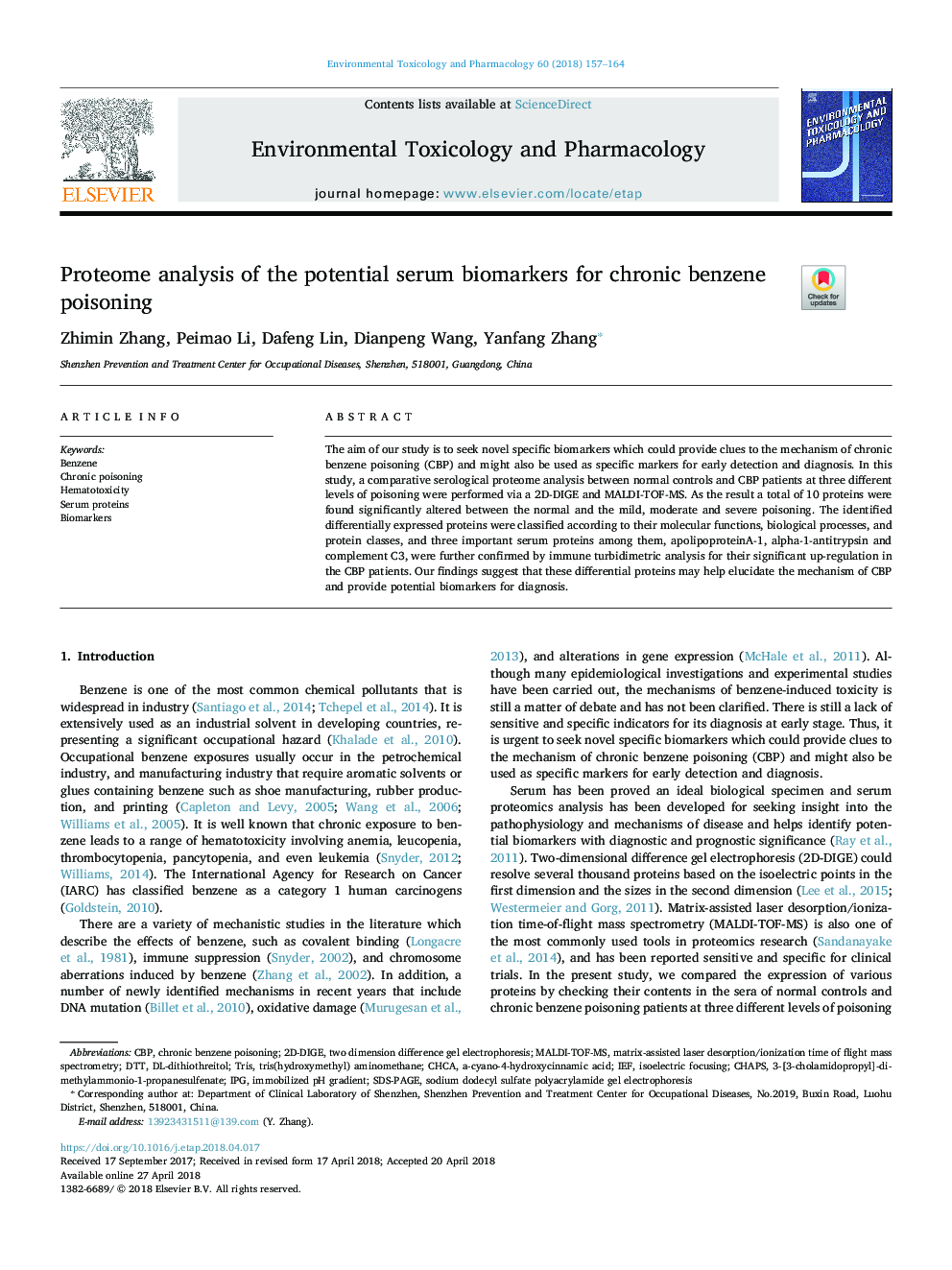| Article ID | Journal | Published Year | Pages | File Type |
|---|---|---|---|---|
| 8545928 | Environmental Toxicology and Pharmacology | 2018 | 8 Pages |
Abstract
The aim of our study is to seek novel specific biomarkers which could provide clues to the mechanism of chronic benzene poisoning (CBP) and might also be used as specific markers for early detection and diagnosis. In this study, a comparative serological proteome analysis between normal controls and CBP patients at three different levels of poisoning were performed via a 2D-DIGE and MALDI-TOF-MS. As the result a total of 10 proteins were found significantly altered between the normal and the mild, moderate and severe poisoning. The identified differentially expressed proteins were classified according to their molecular functions, biological processes, and protein classes, and three important serum proteins among them, apolipoproteinA-1, alpha-1-antitrypsin and complement C3, were further confirmed by immune turbidimetric analysis for their significant up-regulation in the CBP patients. Our findings suggest that these differential proteins may help elucidate the mechanism of CBP and provide potential biomarkers for diagnosis.
Keywords
Chronic benzene poisoningTRISDTTIEFCBPdl-dithiothreitol2D-DIGEIPGimmobilized pH gradientCHCASDS-PAGESodium dodecyl sulfate polyacrylamide gel electrophoresisbenzenetris(hydroxymethyl) aminomethaneisoelectric focusingMALDI-TOF-MSMatrix-assisted laser desorption/ionization time of flight mass spectrometryHematotoxicityChronic poisoningBiomarkersSerum proteinsCHAPS
Related Topics
Life Sciences
Environmental Science
Health, Toxicology and Mutagenesis
Authors
Zhimin Zhang, Peimao Li, Dafeng Lin, Dianpeng Wang, Yanfang Zhang,
